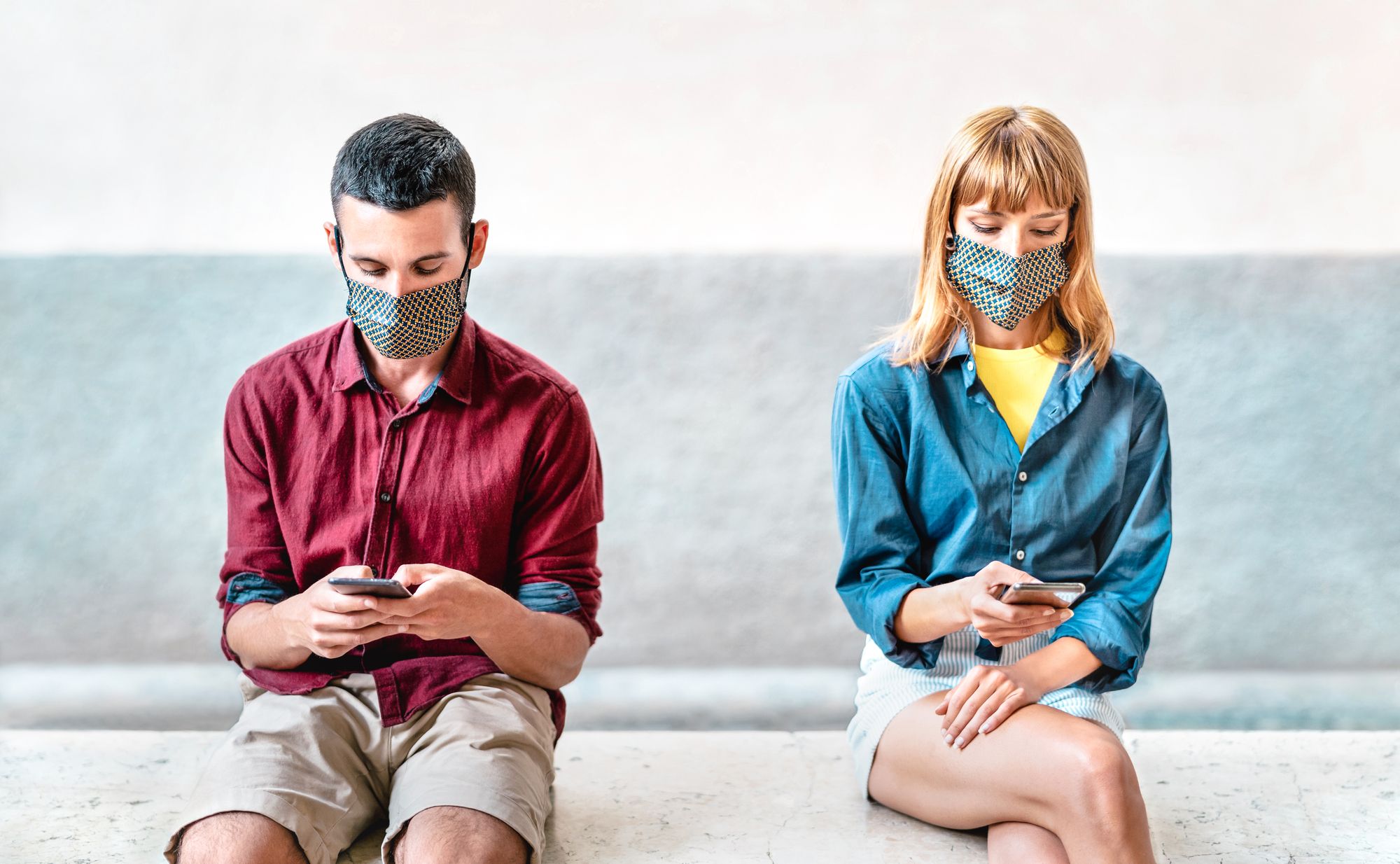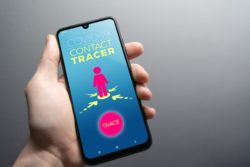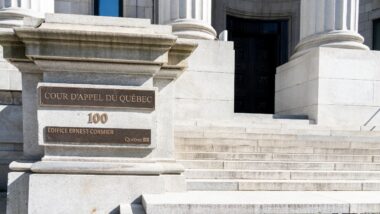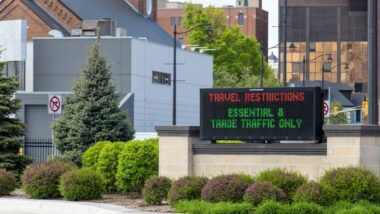Top Class Actions’s website and social media posts use affiliate links. If you make a purchase using such links, we may receive a commission, but it will not result in any additional charges to you. Please review our Affiliate Link Disclosure for more information.

Quebec’s privacy commission, the Commission d’accès à l’information du Québec (CAI), sounded the alarm over risks associated with the COVID-19 tracking app. According to the Journal de Montréal, Quebec’s CAI worries that without specific legislation to regulate the use of the COVID-19 tracking app, an employer or third party could force a citizen to download the tracking tool.
Insufficient Legal Protections for COVID-19 Tracking App
Quebec’s private sector privacy legislation was deemed “insufficient” to protect Quebeckers against potential abuses of the tracking app.
“Our laws lack the teeth to deal with the new technologies that are taking up more and more space in our lives,” the president of the CAI admitted to reporters. “Some issues are not covered by the current law,” she warns, especially in the context of a COVID-19 tracking app.
The CAI president voiced her concern that employers could force employees to download the COVID-19 tracking app, thus violating individual privacy rights. The solution offered by the CAI: The government should adopt a specific legal framework or integrate amendments to current privacy laws to regulate such tracking apps.
Talk about instituting COVID-19 tracking apps is not new. Several Canadian provinces began discussing plans to implement such COVID-19 measures back in April, and were met with strong opposition.
In response to Canada’s proposed COVID-19 exposure notification application, on July 31, the Office of the Privacy Commissioner of Canada released a statement approving the COVID-19 tracing app, with a number of recommendations.
 According to the statement, “the governments of Canada and Ontario have sufficiently demonstrated that COVID Alert is likely to be effective in reducing the spread of the virus, as part of a larger set of measures and subject to close monitoring for effectiveness once the app is in use.”
According to the statement, “the governments of Canada and Ontario have sufficiently demonstrated that COVID Alert is likely to be effective in reducing the spread of the virus, as part of a larger set of measures and subject to close monitoring for effectiveness once the app is in use.”
A key recommendation raised by the Privacy Commissioner concerns the voluntariness of the app. Simply, “the app must be voluntary. Meaningful consent is a key component of voluntariness.”
The statement highlights that COVID-19 tracking app information, although highly unlikely, can be re-identified and linked to individuals using the app. This means that the information collected by the app does not fulfill the criteria of “true anonymity.” Therefore, the government was urged to remove the COVID-19 tracing app’s promise of anonymity, something the government allegedly agreed to do.
Ontario Shuts Down Police Access to COVID-19 Database
After fierce opposition, including a lawsuit launched by various rights groups, the controversial plan to allow police access to COVID-19 database information has come to an abrupt halt.
The groups involved, including Aboriginal Legal Services, the Black Legal Action Centre, the Canadian Civil Liberties Association and HIV & AIDS Legal Clinic Ontario, argued that allowing police to access personal health records violates individuals’ constitutional rights to privacy and equality, and opens a Pandora’s box of complex legal issues.
The Canadian Civil Liberties Association reportedly stated that the lawsuit against the Ontario government has been dropped with the news that the government ended police access to the database.
Data released amid the lawsuit showed that Ontario police services conducted an alarming 95,000 searches of the database while it was active. Over 40% of these searches were conducted by either the Thunder Bay Police Service or Durham Region Police Service, reports CTV News.
Thunder Bay police allegedly accessed the COVID-19 database over 14,800 times. The rate of access of Thunder Bay police was reportedly calculated at a rate ten times higher than the provincial average, despite the fact that the area has reported only 100 COVID-19 cases since the onset of the global pandemic.
The human rights organizations involved in the lawsuit are calling on local police services to destroy the personal health information that has already been accessed.
“Black Ontarians know all too well the lasting discriminatory impact of information stored in police databases,” said Ruth Goba, the executive director of BLAC. “Hyper-surveillance of Black communities is a current manifestation of our history of enslavement, and it is this history and its legacy that is directly responsible for our current state of inequity in Ontario and Canada.”
The Ontario government passed an Order-in-Council under the Emergency Management and Civil Protection Act in early April, giving it the authority to obtain and provide police with the names, addresses and birthdates of Ontarians who tested positive for COVID-19.
In a statement released in March, the Privacy Commissioner of Canada wrote that the COVID-19 pandemic “is raising questions about privacy issues during a pandemic. During a public health crisis, privacy laws still apply, but they are not a barrier to appropriate information sharing.”
Do you think the COVID-19 tracking app violates privacy rights? Should personal COVID-19 data be available to police? Have your privacy rights been infringed during the pandemic? Share your thoughts with us in the comments below!
ATTORNEY ADVERTISING
Top Class Actions is a Proud Member of the American Bar Association
LEGAL INFORMATION IS NOT LEGAL ADVICE
Top Class Actions Legal Statement
©2008 – 2024 Top Class Actions® LLC
Various Trademarks held by their respective owners
This website is not intended for viewing or usage by European Union citizens.
















